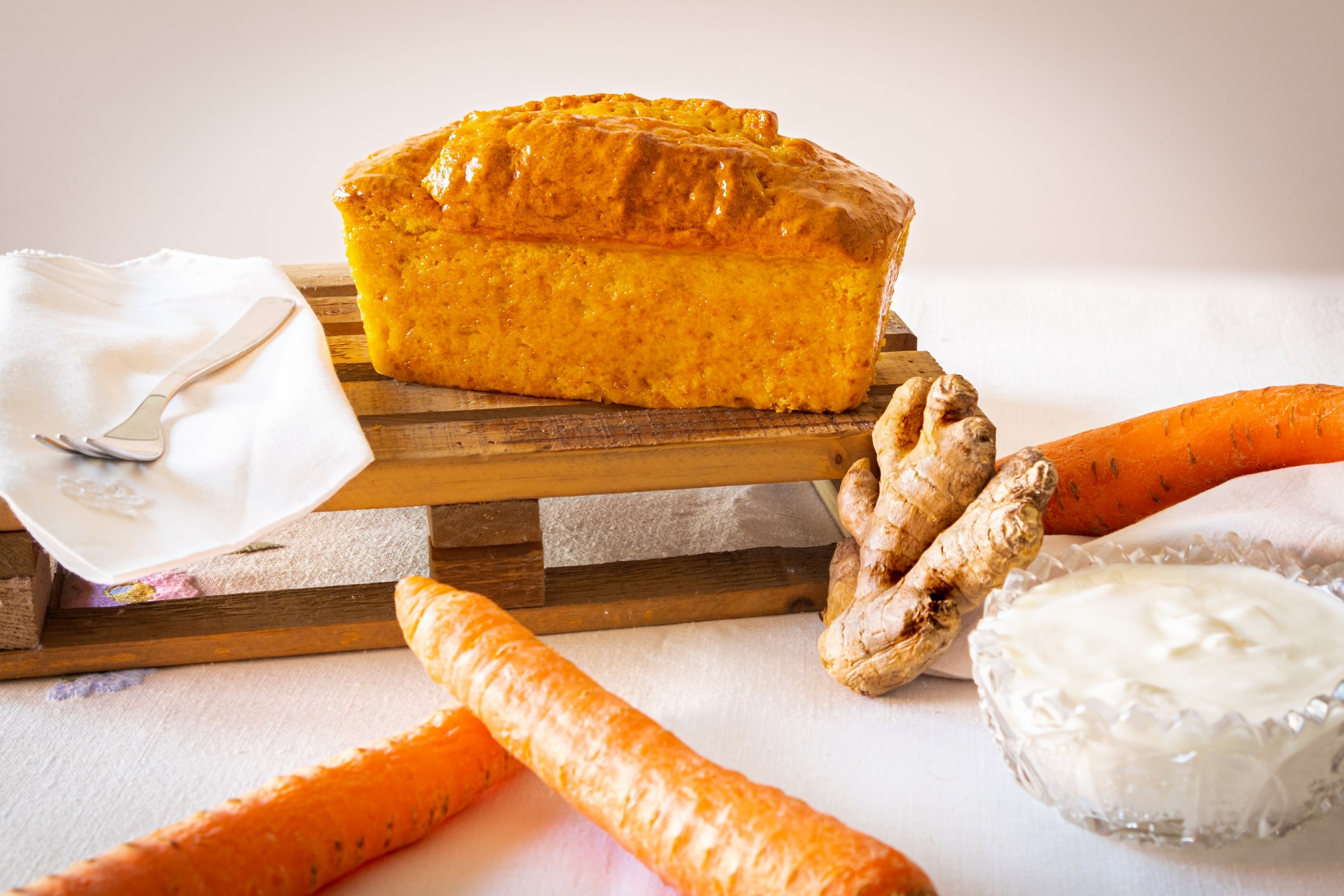Recipe for Self-Care & Support Cake
I often use a cake analogy to describe the process of resolving jealousy, insecurities, or spicy feelings. When I'm feeling crumby, I pretend that I'm baking myself a delicious cake to make me feel better. Why? Cake-making is a formidable act of self-care, in my opinion! It's hard to eat cake and still feel miserable. In this analogy, think of your self-care as the cake batter, and your pals' validation or support as icing. Basically, it’s my job to make sure the inside of the cake contains the right ingredients and has enough time to solidify; my pals add icing to the outside afterward to make it great. We're talking about the difference between internal validation and external support, in case the analogy wasn't abundantly clear. Although, as we mentioned, it doesn't have to be purely metaphorical! Baking a cake with pals is a way of managing jealousy together, and it's quite delicious!
Step 1: Making a list of self-care ingredients
Well before decorating, we need to make a batter, and then turn it into a solid cake. What I like about the cake analogy is that we all have different cake preferences, and similarly we all have different needs when it comes to our self-care practices. I actually picture my favorite cake - carrot, obviously. - and start thinking about each ingredient as a small act of self-care. I literally make myself a list of self-care ingredients that I know make me feel better using a recipe because why not make these ENM exercises a little fun?
Self-Care Carrot Cake:
2¼ cups flour - 1 hour of THERAPY!
3 teaspoons baking powder - 30 minutes of Journaling "turning blurts to affirmations"
1 teaspoon baking soda - 2 hours of Doodling
3 teaspoons cinnamon - 5 minutes three times a day of Deep Breathing
½ teaspoon nutmeg - 1 hour of a Nature walk
1 teaspoon sea salt - 40 minutes of Cooking for myself
½ cup applesauce - $5 for Indulging in luxury - buying fruit!
1 cup oat - 1 hour of Listening to music (maybe dancing)
2 teaspoons vanilla - 1 hour of Getting my mind off the problem by going to the art museum
1 cup cane sugar - 2 hours of Hanging with a friend
½ cup melted coconut or canola oil - 1 day of Taking a solo trip
2 cups grated carrots - 3 hours of Reading a new comic book
The point of actually listing out self-care acts using a full recipe is that it shows me how much goes into making a cake ie. resolving jealousy or spicy emotions. Too often, we think of self-care as a single quick act - taking a bath, once. This cake method helps us adequately conceptualize that adequate self-care requires LOTS of small acts aka, ingredients. We probably won't be able to knock out all our self-care practices in 20-minutes. This exercise helps reframe jealousy management as something that requires lots of time, usually over many days, rather than a quick fix.
Step 2: Baking! ie. Spending time doing pleasurable things.
Feeling well-taken care of means we ACTUALLY take care of ourselves regularly. Most people wait to practice self-care when they're completely burnt out. I do this all the time, and I promise, it isn't a good method. Like cake baking, your self-care gets better with practice. If you get in the habit of regularly returning to your self-care ingredients, you'll find it comes much easier. So step 2 is about setting aside some time and a little cash to actually indulge. Again, we shouldn't view self-care as something we only deserve when we feel bad. Cake is awesome!
You'll notice above that instead of cups and teaspoons, I list out how much time and/or money each item requires. I set aside a small amount each month for my jealousy fund and allow myself to spend it on small things that feel good to me. It can be as little as $5- Julia Cameron points out that luxury doesn't have to be expensive - believing only elites can access luxury is a capitalist scarcity trap. Even folks with nothing in their bank accounts can have luxurious self-care practice, an insistence otherwise is not only bougie as fuck but completely lacks imagination. Jealousy management is about making ourselves feel grateful and happy, the amount of money is not at the heart of this practice. For me, making a jealousy fund has nothing to do with the monetary value, it's about giving myself PERMISSION to spend consciously on things that bring me joy.
By this step, we start to understand the cake analogy more clearly. If you don't take time to bake your own cake, ie. to care for your needs and create conditions in which you feel "solid," you end up with only a bowl of goopy batter. I think a lot of us overcomplicate self-esteem by viewing it as something elusive and difficult to achieve. If we see self-esteem simply as the permission we grant ourselves to engage in pleasurable self-care practices, it becomes far easier for most of us to grasp. Again, none of this has to be complicated. The formula is simple: make a list of self-care ingredients, set aside time and a little money, and then give yourself permission to bake. If you never treat yourself or give yourself permission to feel good, of course, ENM is going to feel like shit and any amount of jealousy will send you over the edge. Again, self-care practices are meant to build your self-esteem by providing for your needs in enjoyable ways. If instead, you take every spicy experience as an invitation to play and make yourself feel better, ENM will feel a lot more joyful and jealousy will be literally manageable. There's no magic trick, it's all about what you put into the cake and how much time you give it to bake.
Step 3: Icing! Asking pals for support & validation
Unfortunately, most people rely solely on their pals for validation and skip the self-care portion. You can see with this analogy, how adding a bunch of frosting, ie. your pals' affirmation, to the raw batter isn't going to help. You need to take time to form a solid self so that your pals' validation actually enhances you rather than adding to a raw mess.
Similarly, if you skip on the icing, ie. you only rely on yourself to meet your needs and refuse your pals' support, you don't have a delicious cake either. It's important to see that I'm not relying on my pals to take on the burden of my emotions, I'm asking them to add icing, meaning providing support to my self-care routine. Their validation becomes the sweetness that I require to make a full cake.
My pals also can't guess what kind of support I need unless I tell them so. If I don't ask for a specific type of icing ie. tangible support, they may give me chocolate frosting for my carrot cake. Obviously, there's nothing wrong with chocolate frosting, that's my partner's favorite, but it's wrong for what I NEED, for MY type of cake. Instead, I make a list for/with my pal so we're on the same page.
Tangible Support Icing:
- ½ cup raw macadamia nuts - 30 minutes of cuddling
- ½ cup raw cashews - 1 hour for Office Hours to discuss agreements
- ¼ cup almond milk - $5 for a gift of a couple of new pens
- ¼ cup maple syrup - 30 minutes of you doing the laundry for me
- 2 tablespoons coconut oil - 15 minutes of listening to me vent
- 1 teaspoon vanilla - 3 episodes of Adventure Time
- 2 teaspoons of fresh lemon juice - 4 hours of hanging out with our mutual friends
- ½ teaspoon salt - 10 minutes of reassuring me you love me
Now, once again, we're on the same page! When I say I need support, they can look at the ingredients on the list and provide care that also aligns with what they're able to offer at the time. If they can't make it to the store to get me pens, it's not the end of the world because they can offer to do laundry instead. Either way, these are all things I've identified that make me feel better, so no matter what my pal chooses, I know they're deliberately doing something to make me feel better.
You'll notice that the support ingredients are varied. I like to think about the five love languages when I'm brainstorming these lists: words of affirmation, receiving/giving gifts, acts of service, physical touch, and quality time. Most often we only think of words of affirmation when thinking about support, however, if you're going through a tough time, hearing your pal reassure you over and over might stop feeling effective. Varying the strategies we use for support can make it feel more thoughtful rather than mechanical. It also offers a bit of spontaneity in your pal's choice of what to offer. Often I hear people say they're frustrated that their pals aren't supporting them, when I ask what they've specifically requested that isn't being provided, most people reply that they haven't asked and just want their pals to know what to do. This mindset is setting us both up for failure. Again, our pals aren't mindreaders, and we're less likely to get the support we need if we aren't clear about what we're looking for. Having a support ingredient list gives your pal direction.
As we discussed in the batter section, the reason we create a multi-ingredient list is that feeling better requires more than one thing. This long list works to elaborate that we need many small things from our pals, rather than just one giant gesture or the same thing over and over again; an enormous amount of macadamia nuts is not the same thing as icing. This is a reminder that support requires time and energy.
One last note, it's important that we create a list of ingredients that our pals are willing to meet. Sometimes in ethical non-monogamy, we expect our pals to provide support that's beyond the scope of our relationship, this cannot work. To continue with the analogy, if my pal is allergic to macadamia nuts, I can't include them on my ingredient list. Or to use a blatantly obvious example, even if I want my pal to have sex with me to reassure me that they love me, but they don't want that sort of intimacy, I can't include it on my list. Even if you want your pals to cancel dates with a metamour to make you feel less jealous, it doesn't mean that they will be willing to do that. This goes back to the basic principles outlined in our Mastering BAES Workbook. If you're struggling with how to overcome mismatched expectations, I recommend you check it out!
Overcoming insecurities requires lots of consistent self-care. To keep it simple, we can only create confidence/ security within ourselves, if we're developing robust ways to meet our needs and have good communication skills to request support from our pals. These skills take time and effort to develop. We aren't perfect, review, and continue to practice frequently!
I hope we got your juices flowing. As always, we aim to provide as much free and accessible content as possible; thanks to the amazing support of our patrons. Head over to our Patreon to support our work and get access to bonus content! If you have any questions or want to chat, please book a peer support session.

